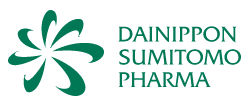预约演示
更新于:2025-05-07
Asthmatic bronchitis
喘息性支气管炎
更新于:2025-05-07
基本信息
别名 Asthmatic bronchitis、Asthmatic bronchitis (disorder)、Asthmatic bronchitis NOS + [17] |
简介- |
关联
11
项与 喘息性支气管炎 相关的药物靶点- |
作用机制- |
非在研适应症- |
最高研发阶段批准上市 |
首次获批国家/地区 日本 |
首次获批日期2007-09-14 |
作用机制 β2-adrenergic receptor激动剂 |
非在研适应症 |
最高研发阶段批准上市 |
首次获批国家/地区 美国 |
首次获批日期2006-10-06 |
靶点 |
作用机制 SCNA调节剂 |
在研机构 |
最高研发阶段批准上市 |
首次获批国家/地区 日本 |
首次获批日期1983-05-27 |
93
项与 喘息性支气管炎 相关的临床试验ChiCTR2500100036
A Nursing Study on the Intervention Program Based on Play Therapy to Improve the Treatment Compliance of Children with Acute Asthmatic Bronchitis
开始日期2025-04-02 |
申办/合作机构- |
CTR20244474
福多司坦片在健康研究参与者中的随机、开放、单剂量、两制剂、两周期、自身交叉空腹及餐后生物等效性试验
主要目的:以南京易亨制药有限公司研制的福多司坦片(规格:0.2 g)为受试制剂,按生物等效性研究的有关规定,与田辺三菱製薬株式会社生产的福多司坦片(参比制剂,商品名:Cleanal®,规格:200 mg)对比在健康人体内的相对生物利用度,考察两制剂的人体生物等效性。
次要目的:观察福多司坦片受试制剂(规格:0.2 g)和参比制剂(规格:200 mg)在健康人中的安全性。
开始日期2024-12-23 |
申办/合作机构 |
CTR20243813
评估受试制剂盐酸丙卡特罗颗粒(规格:50 μg)与参比制剂盐酸丙卡特罗干糖浆(Meptin®)(规格:0.005% (g/g))在健康成年参与者空腹和餐后状态下的单中心、开放、随机、单剂量、两周期、两序列、交叉生物等效性试验。
主要试验目的:研究空腹和餐后状态下单次口服受试制剂盐酸丙卡特罗颗粒(规格:50 μg,广州一品红制药有限公司生产)与参比制剂盐酸丙卡特罗干糖浆(Meptin®,规格:0.005% (g/g);大塚制药株式会社生产)在健康参与者体内的药代动力学特征,评价空腹和餐后状态口服两种制剂的生物等效性。
次要试验目的:研究受试制剂盐酸丙卡特罗颗粒(规格:50 μg)和参比制剂盐酸丙卡特罗干糖浆(Meptin®)(规格:0.005% (g/g))在健康参与者中的安全性。
开始日期2024-11-11 |
申办/合作机构 |
100 项与 喘息性支气管炎 相关的临床结果
登录后查看更多信息
100 项与 喘息性支气管炎 相关的转化医学
登录后查看更多信息
0 项与 喘息性支气管炎 相关的专利(医药)
登录后查看更多信息
866
项与 喘息性支气管炎 相关的文献(医药)2025-06-01·Journal of Hazardous Materials
Taurine supplementation alleviates asthma airway inflammation aggravated by HOCl exposure
Article
作者: Wang, Qian ; Chen, Yingjun ; Yi, Shiting ; Li, Yanwen ; Liang, Shixiu ; Lin, Sitong
2025-04-01·Minerva Pediatrics
Evidence-based nursing in oxygen-driven nebulized inhalation treatment in children with asthmatic bronchitis
Article
作者: Wang, Yue ; Lin, Fei ; Xu, Huijie ; Zhou, Lu ; Lin, Lin ; Wang, Lifen
2025-03-12·Zhonghua jie he he hu xi za zhi = Zhonghua jiehe he huxi zazhi = Chinese journal of tuberculosis and respiratory diseases
[Focus on cough in asthma should be highlighted].
Article
作者: Lai, K F
30
项与 喘息性支气管炎 相关的新闻(医药)2025-04-23
·赛柏蓝
葵花药业葵花药业是集药品制造、营销、科研于一体的大型医药集团。集团现下辖13家药品生产型企业、6家医药公司、4家药物研究院、2家药材种植基地、1家药品包材公司等33家子公司,总部位于哈尔滨市。2014年底在深圳上市,股票代码:002737。连续多年跻身全国医药百强、是“中国医药行业成长50强企业”、“中国优质道地中药材十佳规范化种植基地”。企业拥有722个批准文号,402个医保品种,181个基药品种。基药事业部成立于2014年,主要负责基层医疗终端已挂网品种的销售,目前各省销售队伍已组建成型,欢迎您的加入,干大事业,求大发展,实现人生最大化。护肝片1产品介绍···护肝片在现代中药五味子制剂的基础上,结合张仲景所著《伤寒论》中的“小柴胡汤”和“茵陈蒿汤”,同时配伍民间验方而成的经典组方。实现了“综合施治,整体疗肝”的作用,具有明显保肝降酶、肝炎、抗纤维化的疗效。····2产品优势···◆国家医保甲类,国家基药产品;◆原研品种、全国首家生产,唯一拥有指纹图谱的护肝片,上市45年;◆国家药典护肝片标准的起草单位;◆唯一入选中药标准化项目的肝药;◆唯一进行指纹图谱做质量控制的护肝片;◆学术循证充分:多指南共识强推荐用于药物性肝损伤、酒精肝、脂肪肝、早期肝硬化、病毒性肝炎等;◆1500例真实药物性肝损伤病例研究结果显示,联合葵花护肝片降低转氨酶疗效显著。····3推广方向··· 药物性肝损伤、慢性肝炎、早期肝硬化、脂肪肝、酒精肝 联合用药,家中常备(有效降低转氨酶,修复肝损伤) 需联合保肝的疾病有: √肝炎 √ 早期肝硬化 √高血脂 √ 高血糖 √高血压 √ 冠心病 √结核 √ 病毒性肝炎 √高尿酸 √ 甲亢 √精神类疾病 √ 肿瘤 √风湿 √ 类风湿疾病····4药物说明···【药品名称】通用名称:护肝片汉语拼音:Hugan Pian【成 分】柴胡、茵陈、板蓝根、五味子、猪胆粉、绿豆。【性 状】本品为薄膜衣片,除去包衣后显棕色至褐色;味苦。【功能主治】疏肝理气,健脾消食。具有降低转氨酶的作用。用于慢性肝炎及早期肝硬化。【规 格】每片重0.36g。【用法用量】口服。一次4片,一日3次。【包 装】口服固体药用高密度聚乙烯瓶包装,每盒装100片。【有 效 期】36个月。【执行标准】《中国药典》2015年版一部【批准文号】国药准字Z20003336····小儿肺热咳喘口服液1产品介绍···小儿肺热咳喘口服液(颗粒)组方来源于《伤寒论》中的经典名方“麻杏石甘汤”和“白虎汤”,以及《温病条辨》中的“银翘散”,经近代儿科名医赵心波教授加减划裁而成,临床应用近30年,清热毒、泻积滞、润脏腑,广泛应用于儿童流感、支气管炎、肺炎等呼吸系统疾病的治疗,疗效显著。····2产品优势····1、全国独家 国家基药 国家医保乙类;2、独家口服液剂型,口服液剂型是临床最适宜儿童用药的剂型;3、1995年上市,处方经典、应用广泛、疗效显著、安全性高;4、抗病毒、清肺热、抗炎、止咳、平喘、祛痰六效合一;5、全国首个治疗和预防儿童甲型H1N1流感政府储备药物;6、《儿童流行性感冒中西医结合诊疗指南》等11个国家级指南共识推荐用药;7、目前国内完成儿童肺炎支原体感染临床多中心试验的口服中成药。····3推广方向····★肺炎 ★流行性感冒 ★急性上呼吸道感染 ★气管、支气管炎 ★毛细支气管炎 ★哮喘····4药物说明····【药品名称】 通用名称:小儿肺热咳喘口服液 汉语拼音:Xiao’er Feire Kechuan Koufuye【成 份】麻黄、苦杏仁、石膏、甘草、金银花、连翘、知母、黄芩、板蓝根、麦冬、鱼腥草 。辅料为苯甲酸钠、甜蜜素、蔗糖。【性 状】本品为棕红色的液体,味微苦、微甜。【功能主治】清热解毒,宣肺化痰。用于热邪犯于肺卫所致发热、汗出、微恶风寒、咳嗽、痰黄,或兼喘息、口干而渴。【规 格】每1毫升相当于饮片1.77克【用法用量】口服。一岁至三岁一次10毫升,一日3次;四岁至七岁一次10毫升,一日4次;八岁至十二岁一次20毫升,一日3次,或遵医嘱。【有 效 期】 36个月。【执行标准】《中国药典》2020年版一部 【批准文号】国药准字Z10950080····小儿肺热咳喘颗粒1产品介绍···小儿肺热咳喘口服液(颗粒)组方来源于《伤寒论》中的经典名方“麻杏石甘汤”和“白虎汤”,以及《温病条辨》中的“银翘散”,经近代儿科名医赵心波教授加减划裁而成,临床应用近30年,清热毒、泻积滞、润脏腑,广泛应用儿童流感、支气管炎、肺炎等呼吸系统疾病的治疗,疗效显著。····2产品优势····1、国家基药 国家医保乙类;2、2009年上市,处方经典、应用广泛、疗效显著、安全性高;3、抗病毒、清肺热、抗炎、止咳、平喘、祛痰六效合一;4、全国首个治疗和预防儿童甲型H1N1流感政府储备药物;5、《儿童流行性感冒中西医结合诊疗指南》等4个指南共识推荐用药;6、有效期36个月,工艺创新,质量稳定,高于同类制剂。····3推广方向····★肺炎 ★流行性感冒 ★急性上呼吸道感染 ★气管、支气管炎 ★毛细支气管炎 ★哮喘····4药物说明····【药品名称】 通用名称:小儿肺热咳喘颗粒 汉语拼音:Xiao’er Feire Kechuan Keli【成 份】麻黄、苦杏仁、生石膏、甘草、金银花、连翘、知母、黄芩、板蓝根、 麦冬、鱼腥草。【性 状】本品为棕黄色的颗粒;味甜。【功能主治】清热解毒,宣肺止咳,化痰平喘。用于感冒,支气管炎,喘息性支气管 炎,支气管肺炎属痰热壅肺证者。【规 格】每袋装3克【用法用量】开水冲服,三周岁以下一次3克,一日3次;三周岁以上一次3克,一 日4次;七周岁以上一次6克,一日3次。【有 效 期】 36个月。【执行标准】中华人民共和国卫生部药品标准中药成方制剂第十八册 WS3-B-3361-98【批准文号】国药准字Z20053532····小儿柴桂退热颗粒1产品介绍···小儿柴桂退热颗粒组方来源于明代陶华著《伤寒六书》卷三中的柴葛解肌汤,根据儿童体质特点加减化裁而来,更适合儿童体制,未满周岁儿童可用,同时独家拥有制备工艺专利技术,甜橙口味,儿童用药依从性高。 ····2产品优势···1. 国家新药、国家医保乙类,2018版国家基药,妇儿直接挂网采购品种2. 组方优势:名方化裁,是解热抗病毒经典组方,并且葵花柴桂独家拥有《小儿柴桂退热颗粒的配方及制法》发明专利,有效保障药物有效成分含量及药效。3. 机制明确:解热、抗菌、抗病毒、抗惊厥的物质成分清晰,疗效确切。4. 循证充足:多指南共识推荐,循证充足应用广泛。《中成药临床应用指南—感染性疾病分册》、《中医药单用_联合抗生素治疗小儿急性上呼吸道感染临床实践指南》及《中成药治疗小儿急性上呼吸道感染临床应用指南》等指南推荐用于急性上呼吸道感染的单药和联合用药治疗。《广东省手足口病诊疗指南(2018版)》推荐用药。《儿童急性支气管炎中西医结合诊治专家共识》推荐用药以及10余部省级流感中医药防治方案推荐用药。5. 图谱认证:生产高标—中药指纹图谱认证,生产质控标准高于法定标准。····3推广方向···临床应用于儿童上呼吸道感染、流感、小儿手足口病、疱疹性咽峡炎、急性支气管炎、发热等呼吸系统疾病。····4药物说明···[药品名称]通用名称:小儿柴桂退热颗粒汉语拼音:Xiao,er Chaigui Tuire Keli[成 份] 柴胡、桂枝、葛根、浮萍、黄芩、白芍、蝉蜕。辅料为蔗糖、糊精、倍他环糊精、甜橙香精。[功能主治] 发汗解表,清里退热。用于小儿外感发热。症见发热,头身痛,流涕,口渴,咽红,溲黄, 便干等。[规 格] 每袋装2.5g/5g[用法用量] 开水冲服。周岁以内,一次1/0.5袋;1-3岁,一次2/1袋;4-6岁,一次3/1.5袋; 7-14岁,一次4/2袋;一日4次,3天为一个疗程。[不良反应] 本品有腹泻、皮疹、呕吐、瘙痒等不良反应报告。[禁 忌] 尚不明确。[有 效 期] 36个月。[执行标准] 《中国药典》2020年版一部[批准文号] 国药准字Z20050716[生产企业] 葵花药业集团 (襄阳) 隆中有限公司····优质产品群数量30+ 提供支持1、产品培训,DA、临床文献等支持。2、学术会议及活动等支持。3、给予开发支持及奖励。诚招合作伙伴1、有操作医药品种经验,有投入开发意识的佣金团队及自然人。2、主要操作终端为县级医院、社区卫生服务中心(站)、乡镇卫生院,一体化卫生室。3、具有独立开发市场的能力招商热线小儿肺热咳喘颗粒全医疗终端招商。如有意向代理全省,可联系事业部总经理:黄总:15552877888葵花基药品种火爆招商好专业、优品、共赢『关注药物性肝损伤医学科普课堂』 声明:此篇文章受众仅为医药、医疗等健康产业专业伙伴,仅供医学药学专业人士使用,不针对普通消费大众。
上市批准
2025-04-04
·药闻康策
☝ 点击上方 一键预约 ☝ 最新最热的医药健康新闻政策前 言2025年1月17日,国家医保局召开的“保障人民健康 赋能经济发展”新闻发布会曾明确指出,今年医保部门将持续深入推进药品、医用耗材集中带量采购,包括国家层面将在上半年开展第11批药品集采,下半年开展第6批高值医用耗材集采,并适时启动新批次药品集采。作为存在强劲用药需求的领域,抗哮喘和慢阻肺药物市场共有12个品种被纳入既往批次国采。随着第11批国采脚步的临近,该领域又有那些品种有望进入?相关药物近年来市场表现及企业竞争格局如何?补充说明*本分析所述的药品范围(按照药物解剖学、治疗学及化学分类法ATC编码):R03,包括口服、注射和吸入剂等各类剂型药物。*中国医疗机构:包括两个医院渠道(城市医院、县域医院)和两个基层医疗机构渠道(社区卫生中心、乡镇卫生院)。市场规模近270亿元,阿斯利康领衔市场根据法伯全渠道数据显示,2023年我国总体医疗机构抗哮喘和慢阻肺药物市场规模达到268.2亿元,2021-2023年复合增长7.0%。分渠道来看,近年来各个销售渠道占比稳定,城市医院和县域医院合计占比近90%,2023年各个渠道均实现增长,其中社区卫生中心的增速最快,为34%(图1)。图1-2021-2023总体医疗机构抗哮喘及慢阻肺市场规模及渠道分布数据来源:法伯全渠道数据目前,临床常用的抗哮喘和慢阻肺药物主要包括皮质激素类、β2受体激动剂、黄嘌呤类药物、抗胆碱能药、抗白三烯药等丰富的类别。根据法伯全渠道数据显示,2023年皮质激素在我国总体医疗机构抗哮喘及慢阻肺药物市场占比最大,达31%。TOP10分子中,布地奈德以近74亿元销售额位居首位,布地福格和盐酸左沙丁胺醇近年来增速更快(图2)。图2-2023年总体医疗机构抗哮喘及慢阻肺市场TOP15分子及增速数据来源:法伯全渠道数据企业格局方面,2021-2023年内资企业的整体增速高于外资且占比持续增加,到2023年达55.3%。法伯数据显示,2023年抗哮喘和慢阻肺药物市场销售额TOP10的企业合计占比73%,其中,阿斯利康和葛兰素史克排名前二,内资企业长风药业和成都倍特药业的增速较快(图3)。图3-2023年总体医疗机构抗哮喘和慢阻肺市场TOP10企业及增速数据来源:法伯全渠道数据新一批国采,5个品种初步满足纳入条件根据法伯整理,在已经开展的前十批集采中,抗哮喘和慢阻肺药物市场共有12个品种被纳入,包括六个不同的细分类别,其中特布他林和孟鲁司特分别有多种剂型进入。既往集采涉及的原研厂家包括葛兰素史克、阿斯利康、默沙东、勃林格殷格翰等,原研药物仅默沙东的孟鲁司特片于第一批集采中标。根据法伯全渠道数据显示,这些集采品种2023年在我国总体医疗机构抗哮喘及慢阻肺药市场合计占比达51.4%(图4)。图4-抗哮喘和慢阻肺市场VBP品种及在总体医疗机构销售额占比数据来源:法伯整理随着第11批国采的脚步逐渐临近,有望纳入新一批集采条件的药物成为业内关注的焦点。根据易联招采截止到2025年3月21日统计数据显示,尚未纳入国采且原研企业+过评企业数量≥7家的品种共有113个,已初步符合纳入新一批国采的条件,当中也包括5个抗哮喘及慢阻肺药物品种,分别为:二羟丙茶碱注射剂、富马酸福莫特罗吸入剂、盐酸丙卡特罗吸入剂、盐酸丙卡特罗口服液体剂、硫酸沙丁胺醇注射剂。根据法伯全渠道数据显示,2023年上述集采候选品种在我国总体医疗机构的销售额合计超过20亿元,在抗哮喘及慢阻肺药物市场占比达7.7%(图5)。图5-尚未纳入VBP且竞争格局数量≥7的抗哮喘及慢阻肺药物品种来源:易联招采;法伯全渠道数据*注:1. 竞争格局符合条件不一定会纳入国采,一切信息以官方为准;2. 统计截止日期2025.3.21,仅供参考。抗哮喘及慢阻肺集采候选品种市场发展格局进一步关注部分抗哮喘及慢阻肺药VBP候选品种的分渠道市场格局,法伯数据显示,硫酸沙丁胺醇注射剂超过85%的销售额分布在城市医院,二羟丙茶碱注射剂、富马酸福莫特罗吸入剂、盐酸丙卡特罗口服液体剂则由两类医院共同主导,其中县域医院占比超过20%(图6)。图6-2023年部分抗哮喘及慢阻肺药集采候选品种销售额渠道分布数据来源:法伯全渠道数据二羟丙茶碱注射剂为主,三年复合增长35.5%公开信息显示,二羟丙茶碱主要适用于支气管哮喘、喘息性支气管炎、阻塞性肺气肿等以缓解喘息症状,也用于心源性肺水肿引起的哮喘,为国家医保目录乙类品种。该药物由日本卫材公司研发,于1952年在日本上市,原研产品暂未在国内上市。根据法伯全渠道数据显示,目前二羟丙茶碱市场主要为注射剂型,2021-2023年在总体医疗机构销售额复合增长35.5%,其中超过80%的份额由四环医药占据(图7)。根据易联招采数据显示,截止至2025年3月21日,二羟丙茶碱注射剂过评品种已达29个。图7-2021-2023年总体医疗机构二羟丙茶碱市场规模及渠道分布数据来源:法伯全渠道数据硫酸沙丁胺醇吸入剂型此前已纳入集采沙丁胺醇原研由葛兰素史克原研,于1996年10月获美国FDA批准上市,2003年其吸入气雾剂进入国内市场(商品名:万托林)。沙丁胺醇剂型丰富,目前国内上市销售的主要包括片剂、吸入剂、注射剂等,其中吸入剂的市场占比最大。在第4批国采中,硫酸沙丁胺醇吸入剂被纳入,原研未中标。根据法伯全渠道数据显示,相较于2021年,2023年硫酸沙丁胺醇吸入剂在总体医疗机构销售额增长103%,主要源于弘森药业、普锐特药业(成都倍特药业子公司)、仁合益康、福瑞喜药业这四家中标仿制药企相关产品销售额的大幅增长。图8-2021-2023年总体医疗机构硫酸沙丁胺醇注射剂企业竞争格局数据来源:法伯全渠道数据注射剂方面,2021-2023年整体市场规模复合增长-15.2%,到2023年接近2.3亿元。目前该药物的注射剂市场主要被上海医药和苏州弘森药业占据(图8)。公开信息显示,截至2025年3月21日,硫酸沙丁胺醇注射剂已有包括成都倍特药业、石家庄四药、浙江华海药业等在内的8家企业过评,初步满足纳入新一批国采的门槛。盐酸丙卡特罗两个剂型过评数量≥7家盐酸丙卡特罗由大冢制药原研,于1980年首次上市(商品名:美普清),用于治疗支气管哮喘、慢性支气管炎、肺气肿。该药物最先研发用于成人,后续大冢制药针对儿童用药研发了盐酸丙卡特罗颗粒剂和糖浆剂,并于1984年上市销售;2002年,盐酸丙卡特罗口服溶液上市。目前,国内已上市盐酸丙卡特罗多种剂型,包括颗粒剂、口服溶液、片剂、吸入剂等,其中占比较大的为颗粒剂(45.6%)和口服溶液(34.2%),两类吸入剂则占比较小(图9)。图9-2021-2023年总体医疗机构盐酸丙卡特罗口服溶液竞争格局数据来源:法伯全渠道数据据易联招采截至2025年3月21日数据统计,目前盐酸丙卡特罗的口服溶液和吸入溶液过评数量分别为12和8,均初步满足纳入集采的条件。法伯数据显示,2023年我国总体医疗机构盐酸丙卡特罗口服溶液市场规模超过1.5亿元,2021-2023年复合增长3.5%,过半市场持续由原研大冢制药占据(图9)。富马酸福莫特罗2023年销售额近1.3亿另外一个集采候选品种,富马酸福莫特罗吸入溶液是第三代速效长效选择性β2肾上腺素类受体激动剂,最早由Mylan迈兰公司研发,于2007年获得美国FDA批准。国内市场方面,阿斯利康和正大天晴的富马酸福莫特罗粉吸入剂分别于2000年和2010年在国内获批上市,而由潍坊中狮制药首仿的富马酸福莫特罗吸入溶液则于2022年8月才获批。法伯数据显示,2023年我国总体医疗机构富马酸福莫特罗市场规模近1.3亿元,其中超过88%为吸入溶液,且该剂型市场基本由首仿企业独占。目前,富马酸福莫特罗吸入溶液过评企业已达14家,能否纳入新一批集采,值得关注。(来源:法伯科技 )药闻康策新媒体矩阵微信公众号点击下方 一键关注 【免责声明】1.“药闻康策”部分文章信息来源于网络转载是出于传递更多信息之目的,并不意味着赞同其观点或证实其内容的真实性。如对内容有疑议,请及时与我司联系。2.“药闻康策”致力于提供合理、准确、完整的资讯信息,但不保证信息的合理性、准确性和完整性,且不对因信息的不合理、不准确或遗漏导致的任何损失或损害承担责任。3.“药闻康策”所有信息仅供参考,不做任何商业交易或医疗服务的根据,如自行使用“药闻康策”内容发生偏差,我司不承担任何责任,包括但不限于法律责任,赔偿责任。欢迎转发分享、点赞、点在看
带量采购申请上市
2025-03-12
昨日,湖南省医保局发布《关于部分药品成本构成情况的公示》,对部分药品生产成本的构成进行了公示。
公示表示,根据挂网药品价格治理相关规定和《关于印发〈审计反映药品价格问题整改操作指引〉的函》要求,对部分企业在湖南省申报挂网价格显著高于同类药品价格的产品,进行药品成本构成情况公示。欢迎相关企业监督,促进药品价格公平透明均衡,避免出现畸高价格,损害人民群众利益和医保基金安全。
公示显示,本次公示共涉及三个厂家、两个品种,分别为二羟丙茶碱注射液、阿法骨化醇滴剂。公司表格对其制造成本、期间费用、销售利润、税费、出厂价、含税出厂价等情况进行公示,有厂家还附上了主要辅料的采购成本。
其中,南京恩泰医药科技有限公司的二羟丙茶碱注射液,制造成本20.30元,期间费用——销售费用及管理费用共计11.38元,销售利润11.32元,无税出厂价43元,含税出厂价48.59元/支。在制造成本中,原料、辅料、包材等为3.74元。
四川邈济生物医药科技有限公司的二羟丙茶碱注射液的制造成本为28.01元,期间费用——销售及管理费用13.42元,财务费用0.6元,销售利润3.86元,出厂价45.29元,含税出厂价52.99元/支。制造成本中原料、辅料、包材合计5.78元。
湖北欣泽霏药业有限公司的阿法骨化醇滴剂的生产制造成本为153.33元,期间费用为111.97元,销售利润48.20元,税费55.5元,出厂价313.50元,含税出厂价为369元。制造成本中原料、辅料、合计包材22.05元。
从利润占比来看,以价格最高的阿法骨化醇滴剂为例,价格为300多元产品,其销售利润为48.2元,如果以含税价369元计算,其利润率只有13%,并不高,其他两家产品销售利润甚至更低。
但如果对比集采中选价格,如此高的价格,却只有如此低的利润,说明药企成本控制、期间费用都还有很大提升空间。
以二羟丙茶碱为例,该药是一种平滑肌松弛药,为茶碱类药物,具有扩张支气管、扩张冠状动脉和强心的作用,临床上多用于支气管哮喘、喘息型支气管炎、阻塞性肺气肿等以缓解喘息症状,也用于心源性肺水肿引起的哮喘。其原研厂家为日本卫材,原研品牌并没有在国内上市,国内市场主要由国产仿制药占据。
米内网数据显示,近年来,二羟丙茶碱注射液在中国城市公立医院、县级公立医院、城市社区中心以及乡镇卫生院(简称中国公立医疗机构)终端的放量明显,其销售额由2020年的约3亿元上涨至2022年的超7亿元,2023年上半年超过6亿元。
近年来中国公立医疗机构终端二羟丙茶碱注射剂销售情况
照片来源:米内网数据库
作为销售过亿的品种,二羟丙茶碱注射剂早已经被省际集采盯上,2023年分别被河南牵头的十九省联盟集采、江苏省第四批药品集采纳入,最低的中标价格已不足1元。比如,在2023年河南十九省联盟集采中,山西晋新双鹤药业报出了0.78元/支的最低价,另外9家的中选价格也都没有超过1元。
河南省集采联盟中选情况
阿法骨化醇为治疗骨质疏松的药物,在国内已经上市多年,2021年,阿法骨化醇被纳入第五批国采,以下为胶囊和片剂的中选厂家,从价格来看,胶囊和片剂最小制剂单位的价格已经低于2元。
同年,阿法骨化醇滴剂被广东省牵头采购联盟纳入省际集采目录,但最终却流标,并无产品中选。
附:湖南省公布的药品生产成本
来源:趣学术
点击 阅读原文 了解更多
财报带量采购IPO
分析
对领域进行一次全面的分析。
登录
或

生物医药百科问答
全新生物医药AI Agent 覆盖科研全链路,让突破性发现快人一步
立即开始免费试用!
智慧芽新药情报库是智慧芽专为生命科学人士构建的基于AI的创新药情报平台,助您全方位提升您的研发与决策效率。
立即开始数据试用!
智慧芽新药库数据也通过智慧芽数据服务平台,以API或者数据包形式对外开放,助您更加充分利用智慧芽新药情报信息。
生物序列数据库
生物药研发创新
免费使用
化学结构数据库
小分子化药研发创新
免费使用






